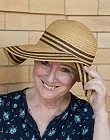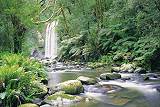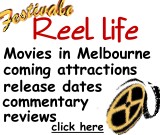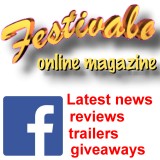Autumn 2015
The Good, the Bad and the Ugly
Western writing
"Lean as a famine wolf but wide and thick in the shoulder, the man called Shalako was a brooding man..."
Yep, this character from the Louis L'Amour novel, by the same name, is a cliché.
And most protagonists in 20th century "Westerns" are Shalako twins, with a few tweaks.
After I tell you more about this, I'm also going to tell you the difference between "Westerns" and novels set in the West.

But, if you want to read a "Western," look for a plot with a familiar ring to it. Motives differ, but most "Western" protagonists (and they are always men), seek revenge, or are out to right wrongs, or they're trying to help a girl, or a town, and all of them are good with a gun. From Kansas to California, they fight rustlers, Indians, outlaws, and sometimes they are the outlaws (although misunderstood and not that bad). L'Amour, Zane Grey, Max Brand, Luke Short, Ralph Cotton (still writing), William Johnston, Frank O'Rourke, and dozens more, have produced these melodramas.
(To be fair, O'Rourke was a pretty good writer. I enjoyed The Far Mountains, a novel about a boy learning to survive in the wilderness).
Traumatic pasts are common for "Western" heroes, but their characters are never explored in depth. Readers want to see their heroes in action, and so that's what they get.
Here's the good part. Not all novels set in the American West are "Westerns." Many novels set in the West are really good books, stuffed with deep characters, and are replete with theme, lyrical description and off-beat plots.
Here are a few I've really enjoyed.
Owen Wister's Lin McLean, published 1897, is about a young man learning about life in Wyoming Territory (the hard way). (This wistful novel does not have one gunfight in it).

Everybody knows about Larry McMurtry's Lonesome Dove, that it's about a cattle drive from Texas to Montana. They don't necessarily know Dove is a character-driven novel and the characters are delightful. Show me a better (multifaceted) protagonist than Gus McCrae, that life-loving and bigger than life hero, and his friend and glum business partner Woodrow Call.
I defy you to find a better ending than the one McMurtry wrote, but I'm not going to tell you about it because you might want to read the book. These men are mythic, meaning both of the Western myth and bigger than the myth. America agreed, making Lonesome Dove a longtime bestseller, and in 1986 it earned the Pulitzer prize for fiction.

The Wonderful Country, by Tom Lea, is one of my favorite novels. It's about a man trying to find home. Martin Brady was originally from Missouri, but after the Civil War, he and his father (a Confederate veteran) left for Texas. After his father is murdered, the boy Martin kills the man who murdered his father and flees to Mexico. The book opens twenty years later as Martin returns to the American side of the river to buy guns for his Mexican patron (employer, or boss). Lea was a talented artist who also drew the illustrations for The Wonderful Country.

Alan LeMay wrote two novels that could be considered, on first glance, to be "Westerns." But they're not. Searchers is about racism, and how difficult it was to live in the rough West and then fit into "civilized" society. Searchers begins with an Indian raid on a lonely Texas homestead. Everyone is killed except one little girl, Debbie, who is taken captive (this actually happened many times in the West, particularly in Texas). Thereafter, Debbie's uncle, and a foster brother, scour the West for her. When she's found, Debbie is married to an Indian man.
In The Unforgiven, LeMay again uses Indians as a major part of the plot. This time, a white family adopts an Indian child, only to find her tribe wasn't ready to give her up. The family and the Kiowas fight it out. Who are the true relatives; the Indians who will kill the girl's adopted family to get her back (which is a matter of principle), or the family who has raised her and cherishes her?
Both of these LeMay novels are intricately plotted and carry big themes.
Born of the Sun, by John Culp is another good one. This time, a boy is adopted by relatives and grows up on a Texas ranch.

I love Adobe Walls, by W.R. Burnett. Walls can be mistaken for a "Western," but it's an historical novel-meaning the plot is not dangling out there alone, like a Deadwood episode. Culture and society are set in historical context. We find out why Arizonians hate the Apache Indians, and the consequences to both Indians and Whites. Also, it's about how societies often reject their own warriors.
All of these books are dated, but you can get any of them from Amazon.
In my own writing I've written three (if you don't count the one I burned). Scalp Mountain is about the Indian Wars in Texas. Del Norte is also set in frontier Texas, but it's about a man and woman who are in the saloon business together. Saint of the Burning Heart is set in 20th century Texas, amid racial turmoil. In writing these books, I've tried to write novels and not "Westerns." I've written about what I care about; Texas and its people, the country, our complicated and difficult past (I'm a Texan) and what motivates human beings. Read me, or read any of the wonderful novels I've mentioned. And remember, there's plenty of other good novels out there, many of them set in the West.

Julia Robb is a Texas-based writer, editor and speaker.
Or find me on facebook, both Julia Robb and Author: Julia Robb.
See also in this series:
The Immortal Enduring Vampire by Rhiannon Frater
Get Ready Cyberfunkers: Black Science Fiction by K. Ceres Wright
Defining Horror by Jeani Rector
Steampunk: A Marvellous Excursion by Michael Pryor
Female Private Eyes in Fiction: From Lady Detectives to Hard-Boiled Dames by Colleen Collins
The Good, the Bad and the Ugly: Western Writing by Julia Robb
Grand Tradition Science Fiction: Stories that Want to Have Fun, by Bascomb James
Unintended Invention: The Fantasy of Manners, by Ellen Kushner
For posts about Melbourne events, places, news, reviews, giveaways, see our Facebook Page:






 Published in Melbourne, Victoria, Australia
Published in Melbourne, Victoria, Australia